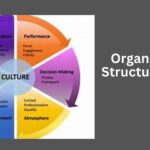In this Article;
• The Basics of Healthy Eating – Understanding Macronutrients
• The Benefits of Healthy Eating
• Practical Tips for Healthy Eating
• Special Dietary Considerations
Healthy Eating and Nutrition For Healthy Aging
In an era where convenience often takes precedence over health, it’s essential to remind ourselves of the importance of healthy eating and proper nutrition.
Our dietary choices play a fundamental role in our overall well-being, impacting our physical health, mental clarity, and longevity.
This article delves into the art and science of healthy eating and nutrition, exploring the principles, benefits, and practical tips for maintaining a balanced and nourishing diet.
The Basics of Healthy Eating – Understanding Macronutrients
The foundation of a healthy diet lies in understanding macronutrients: carbohydrates, proteins, and fats.
Carbohydrates: Your body uses carbohydrates as its main source of energy. Opt for complex carbohydrates found in whole grains, vegetables, and fruits, as they provide sustained energy and essential nutrients.
Proteins: Vital for growth and repair, protein-rich foods like lean meats, poultry, fish, tofu, and legumes should feature in your diet. Aim for a healthy mix of animal and plant protein sources.
Fats: Not all fats are created equal. Focus on healthy fats from sources like avocados, nuts, seeds, and olive oil while limiting saturated and trans fats found in processed foods.
Portion Control
One key to maintaining a healthy weight and nutrient balance is portion control. Even while eating nutritious meals, overeating can lead to weight gain. . Learn to listen to your body’s hunger and fullness cues, and be mindful of portion sizes.
Hydration
Although it is frequently neglected, enough hydration is important for general health. Throughout the day, aim to drink lots of water. Herbal teas and infused water may spice up your water intake.

The Benefits of Healthy Eating
1.Weight Management
A well-balanced diet plays a pivotal role in weight management. It helps you control calorie intake and ensures you get the necessary nutrients without excess empty calories. Combined with regular exercise, healthy eating can help you reach and maintain a healthy weight.
2. Improved Heart Health
A diet rich in fruits, vegetables, whole grains, and healthy fats can reduce the risk of heart disease. These foods help lower cholesterol levels, reduce blood pressure, and maintain a healthy heart.
3. Enhanced Digestive Health
Fiber-rich foods such as whole grains, legumes, and vegetables promote digestive health. They prevent constipation, maintain bowel regularity, and support a healthy gut microbiome.
4. Better Mental Health
Research indicates a strong connection between diet and mental health. Nutrient-dense foods can help reduce the risk of depression and anxiety while enhancing cognitive function. Omega-3 fatty acids, found in fish and flaxseeds, are very beneficial to the brain.
5. Increased Energy Levels
Healthy eating provides a steady supply of energy throughout the day. By avoiding sugar crashes and energy slumps, you can maintain higher productivity and stay more active.
Practical Tips for Healthy Eating
1. Meal Planning
Meal planning is the foundation of good eating. It allows you to make informed choices, avoid impulsive fast food decisions, and ensure balanced nutrition. Start by creating a weekly meal plan and a shopping list to support it.
2. Choose Whole
Foods Despite having undergone little processing, whole foods are nevertheless nutrient-rich. Opt for whole grains, fresh fruits, vegetables, and unprocessed meats whenever possible.
3 Read Labels
When buying packaged foods, read labels carefully. Look for products with shorter ingredient lists, minimal additives, and lower sugar and sodium content.
4. Mindful Eating
Eating mindfully means paying full attention to your food and savoring each bite. During meals, stay away from distractions like TV and cellphones and concentrate on the flavor, texture, and scent of your food instead.
5. Cook at Home
You have control over the ingredients and serving quantities when you prepare your own food. Experiment with new recipes and cooking techniques to keep your meals exciting and nutritious.
6. Limit Sugar and Processed Foods
Excess sugar and highly processed foods can lead to various health issues. Limit your consumption of processed foods, candy, and sugary beverages
Special Dietary Considerations
Special dietary considerations involve tailoring your food choices to address specific health, cultural, or lifestyle requirements.
These considerations ensure that individuals with allergies, dietary restrictions, or unique nutritional needs receive adequate nourishment while enjoying a satisfying and safe eating experience. Common special dietary considerations include vegetarianism, veganism, gluten-free, and lactose intolerance.
Others revolve around medical conditions such as diabetes, celiac disease, or food allergies, where careful attention to ingredient labels and cross-contamination is crucial. Cultural and religious practices can also influence dietary choices, emphasizing the importance of respect and inclusion.
Understanding and accommodating special dietary needs promotes inclusivity and well-being, enabling everyone to partake in the joys of communal dining while fostering a healthy relationship with food.
Whether by choice or necessity, special dietary considerations empower individuals to make mindful, nutritious, and satisfying food choices that align with their unique lifestyles and preferences.
1. Vegetarian and Vegan Diets
Many individuals opt for vegetarian or vegan diets for health, environmental, or ethical reasons. These diets can be nutritionally sound if well-balanced, with a focus on plant-based protein sources, fortified foods, and supplementation as needed.
2. Gluten-Free Diet
Individuals with celiac disease or gluten sensitivity must eliminate gluten-containing grains like wheat, barley, and rye. Fortunately, there are gluten-free alternatives available.
3. Dietary Restrictions and Allergies
If you have food allergies or intolerances, it’s crucial to read labels carefully and learn about safe substitutions. For tailored advice, speak with a licensed dietician or healthcare professional.
Healthy eating and proper nutrition are not mere trends but lifelong practices that significantly impact our health and well-being.
By understanding the basics of nutrition, recognizing the benefits of healthy eating, and implementing practical tips and special considerations, you can embark on a journey towards a healthier, happier life.
Remember that small changes can lead to significant improvements, and it’s never too late to prioritize your health through the food you eat.






